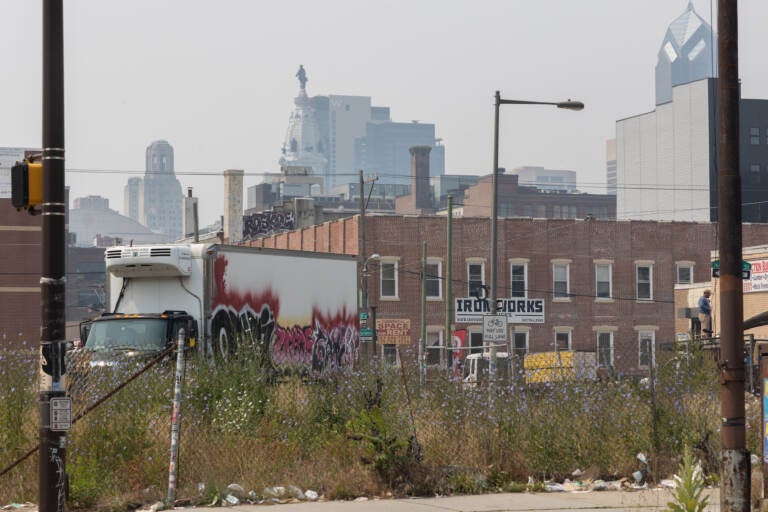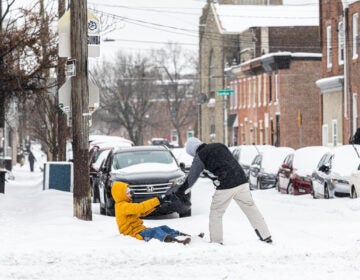Pa. declares Code Red due to poor air quality from Canadian wildfires
Under a Code Red, air pollution concentrations are considered unhealthy for the general population and outdoor activity should be avoided.

File photo: Visibility in downtown Philadelphia was greatly reduced by smoke drifting into the city from Canadian wildfires on June 7, 2023. (Kimberly Paynter/WHYY)
What you need to know
- The Delaware Valley is still seeing poor air quality due to Canadian wildfires.
- Residents, particularly those in vulnerable populations, are encouraged to stay indoors and limit or avoid outdoor activities.
- As smoky conditions persist, here’s how to understand your air quality index.
- The worst of the smoke is behind us, but we can expect more massive wildfires this summer thanks to climate change.
The Delaware Valley has seen the worst of this iteration of Canadian wildfire haze, but air quality alerts remain in effect.
On Friday afternoon, Pennsylvania declared a Code Red Air Quality Action Day for the entire commonwealth. The state Department of Environmental Protection noted that, though conditions will continue to improve, Code Red conditions persist in most of the state.
Under a Code Red, air pollution concentrations are considered unhealthy for the general population and outdoor activity should be avoided.
Under Code Red conditions, experts recommend that everyone avoid the outdoors, keep windows shut, and run air conditioning on a re-circulation setting. Those who go outside are encouraged to wear a high-quality mask, such as an N-95 or KN-95, to reduce pollution exposure.
Philadelphia declared a Code Orange on Friday, though city officials noted air quality may vary by neighborhood. Residents are encouraged to visit AirNow.gov to check local conditions.
Under a Code Orange, air pollution concentrations may be unhealthy for vulnerable groups such as children, people with asthma, people with heart or lung disease, and older adults.
South Jersey and Delaware are similarly experiencing Code Orange conditions.
Here’s how to understand your air quality index, and how to protect yourself from wildfire smoke.

Show your support for local public media
WHYY is your source for fact-based, in-depth journalism and information. As a nonprofit organization, we rely on financial support from readers like you. Please give today.






